
HERE are two good articles on the fascist anti-net neutrality policies of the drumpf/trump-pence administration's FCC chairman and the republican members of the FCC. Once net neutrality is revoked the only way to restore it will be to elect enough politicians to congress to pass a law restoring net neutrality as the law of the land. MIDTERM ELECTIONS ARE ON 6 NOV 18. VOTE! From arsTechnica and Gizmodo.....
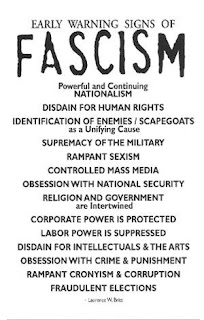
CLYBURN'S FAREWELL, FOR NOW —
FCC is hurting consumers to help corporations, Mignon Clyburn says on exit
Broadband regulators should actually regulate broadband, ex-FCC official says.
As Mignon Clyburn left the Federal Communications Commission, the longtime telecom regulator worried that the FCC is abandoning its "prime directive" of protecting consumers.
"I'm an old Trekkie," Clyburn told Ars in a phone interview, while comparing the FCC's responsibility to the Star Trek fictional universe's Prime Directive. "I go back to my core, my prime directive of putting consumers first." If the FCC doesn't do all it can to bring affordable communications services to everyone in the US, "our mission will not be realized," she said.
The FCC's top priority, as set out by the Communications Act, is to make sure all Americans have "affordable, efficient, and effective" access to communications services, Clyburn said. But too often, the FCC's Republican majority led by Chairman Ajit Pai is prioritizing the desires of corporations over consumers, Clyburn said. "I don't believe it's accidental that we are called regulators," she said. "Some people at the federal level try to shy away from that title. I embrace it."
Clyburn's last FCC meeting was on April 17, and she gave her last policy speech as an FCC commissioner on May 9. She spoke to Ars shortly before her departure from the FCC.
ISPs are “last-mile monopolies”
Clyburn said that deregulation isn't bad in markets with robust competition, because competition itself can protect consumers. But "that is just not the case" in broadband, she said.
"Let's just face it, [Internet service providers] are last-mile monopolies," she told Ars. "In an ideal world, we wouldn't need regulation. We don't live in an ideal world, all markets are not competitive, and when that is the case, that is why agencies like the FCC were constructed. We are here as a substitute for competition."
Broadband regulators should strike a balance that protects consumers and promotes investment from large and small companies, she said.
"If you don't regulate appropriately, things go too far one way or the other, and we either have prices that are too high or an insufficient amount of resources or applications or services to meet the needs of Americans," Clyburn said.
Despite Clyburn's protests, the FCC's Republican majority decided to strip the agency of much of its regulatory authority over Internet providers. As part of the FCC's decision to eliminate net neutrality rules, the FCC declared that broadband isn't a telecommunications service and thus shouldn't be subject to common carrier regulation.
Clyburn stayed longer to fight GOP agenda
As an FCC commissioner for almost nine years and the acting chair for six months in 2013, Clyburn fought for net neutrality, online privacy, lower phone prices for prisoners, Lifeline support for low-income consumers, and numerous other consumer protection measures.
Clyburn was part of a Democratic majority for most of her tenure and was therefore able to push through much of her agenda. The FCC majority changed hands to Republicans when Donald Trump was elected president, and Clyburn's term expired in June 2017. She had the choice to leave or stay and seek a new five-year term, since commission rules allowed her to stay until the end of 2018.
Clyburn said that she likely would have left the FCC sooner if Democrats had remained in power. If Clyburn was confident that the FCC would put consumers first, "I probably would have exited long before now," she said.
Clyburn said she stayed on longer because of her concerns about the Republican majority's policies on inmate calling prices, the repeal of net neutrality, and universal service programs that fund broadband in rural areas.
Similarly, if a Democrat instead of Pai was in charge, "I would not have been worried about the Lifeline program, which I believe is on life support," Clyburn said.
One of Pai's pending proposals could prevent resellers from selling Lifeline-subsidized plans. This would force more than 70 percent of low-income wireless phone users who rely on Lifeline subsidies to find new ISPs, while dramatically limiting their options. Clyburn said the Lifeline program "runs the risk of being dismantled because of non-commonsensical rules that are being proposed," she said. During Pai's chairmanship, she has fought several changes that could make it harder for poor people to get broadband or phone service through Lifeline.
Pai's “deregulatory lens”
Pai views the telecom industry "through a deregulatory lens" and avoids regulations except when there's an egregious level of harm to consumers, Clyburn said. "He's a believer in markets. So am I," she said. But "it would take a whole lot of disruption for him to believe that this free market approach, this deregulatory approach, is not justified—a whole lot of harm, and I mean a whole lot."
Clyburn said that the FCC has done little to address high inmate calling prices "and other areas where there's a whole lot of harm and not any action here."
The US also hasn't done enough to fight red-lining practices in which ISPs provide advanced services in rich areas while letting networks stagnate in poorer neighborhoods, Clyburn said. "The people who need these services the most are the ones who have the least," she said.
Clyburn also wants a greater focus on urban broadband gaps. Government programs on broadband access generally focus on rural areas, which are sparsely populated and thus less profitable for ISPs. But Clyburn said that "we cannot afford to be so fixated on one part of America while ignoring" the urban areas that also lack robust and affordable broadband.
When Democrats held the majority, Clyburn helped push through privacy rules that would have required ISPs to get opt-in consent from consumers before sharing Web browsing data and other private information with advertisers and other third parties.
Congress's decision to prevent the FCC's implementation of those broadband privacy rules still bothers Clyburn.
"We've taken ourselves out of the privacy business and I think that's left us too vulnerable," she said. ISPs "know a lot about us," and "they can almost do whatever they feel like with the information that they have about us... to me, having a regulatory-free zone when it comes to privacy is extremely problematic."
Clyburn will continue fight outside FCC
Clyburn's vacated Democrat seat is likely to be filled by Geoffrey Starks, an assistant chief in the agency's enforcement bureau. Republicans will maintain a 3-2 majority.
Clyburn didn't reveal what her post-FCC plans are but said she will continue advocating for underserved populations. "I hope to be able to do much of the same, to be a voice for the voiceless," she said. "I hope to be able to be an advocate for those who may not have gotten the type of attention that I believe they deserve at the agency."
Serving on the FCC was "the most incredible job I've ever had," and the agency "is one of the most consequential agencies in the world," she said. But there's an advantage to being an advocate outside government, she noted. "When you serve on [the FCC], you are limited in how you say certain things and who you can say it to. The one good thing about me closing this chapter and beginning a new one is I won't have those levels of restrictions, but I will still have all the knowledge and passion."
Senators Demand FCC Answer for Fake Comments After Realizing Their Identities Were Stolen
In a bipartisan letter on Monday, two US senators called on the FCC to investigate the identity theft and fraud in public comments collected by the agency during its proposal to rollback net neutrality protections last year.
Senators Jeff Merkley, Democrat of Oregon, and Pat Toomey, Republican of Pennsylvania, are among the estimated “two million Americans” whose identities were used to file comments to the FCC without their consent.
“The federal rulemaking process is an essential part of our democracy and allows Americans the opportunity to express their opinions on how government agencies decide important regulatory issues,” the pair of lawmakers wrote. “As such, we are concerned about the aforementioned fraudulent activity. We need to prevent the deliberate misuse of Americans’ personal information and ensure that the FCC is working to protect against current and future vulnerabilities in its system.”
“We encourage the FCC to determine who facilitated these fake comments,” the letter continues. “While we understand and agree with the need to protect individuals’ privacy, we request that the FCC share with the public the total number of fake comments that were filed.”
So were “fake comments” filed using stolen identities? Almost certainly. The fact that two US senators of rival parties have signed a letter saying as much is a clear indication that some type of fraud occurred. But how many of the comments used stolen identities? Despite exhaustive digging by data scientists, journalists, and independent researchers, there’s no reliable figure thus far.
“People are losing faith in their democracy. The FCC’s repeal of net neutrality is set to go into effect in a matter of weeks, despite the fact that the process around it has been riddled with serious issues of fraud and abuse that the agency has thus far refused to address,” said Evan Greer, deputy director of the pro-net neutrality group Fight for the Future.
A majority of the 23 million comments received by the FCC last year were delivered via form submission; letters pre-written by activists, which users merely “signed” before clicking “send.” This is not unusual. Although the FCC doesn’t actually read or care whatsoever about these comments —it generally only takes into consideration those submitted by lawyers and industry experts—activists enjoy a ton of press when “millions” of comments are delivered and it helps drum up public support for their cause.
The FCC’s IT workers even privately coordinate with large advocacy groups to ensure that their comments can be submitted in bulk without overloading its servers. Private companies also do this, including CQ Roll Call, publisher of the the Washington DC newspaper Roll Call. A spokesperson for the company told Gizmodo in October: “CQ has had a system to direct comments to ECFS for more than a year. CQ’s advocacy system did deliver millions of comments to the ECFS for the docket Restoring Internet Freedom.”
- Nearly 440,000 FCC comments identical to the one from "Barack Obama" were generated by a group called Center for Individual Freedom. Here's a screenshot of CFIF's website with an identical message.
- The CFIF submission form (https://web.archive.org/web/20171007234210/http://www.cfif-take-action-fcc.org/ …) shares identical HTML with the Taxpayer Protection Alliance’s submission form (https://web.archive.org/web/20171007234436/http://www.tpaaction.org/ …) which are part of a bigger anti-NN coalition known as "Unlock The Net"
All told, only 6 percent of the comments were unique, according to Pew Research. Others, however—potentially millions—were likely submitted by bots. And there’s substantial evidence, albeit mostly anecdotal, to support the theory that hundreds of thousands, if not millions of people’s names and addresses were used without their consent. One independent investigation found that more than 65 percent of the personal data used in identical FCC letters overlapped with data exposed in data breaches; though the database checked against does contain hundreds of millions of email accounts, many still likely in use.
FCC Chairman Ajit Pai has for the most part ignored cries over the use of fake accounts and has been combative of calls to investigate the matter, even after law enforcement officials began floating the idea that a federal crime may have been committed.
Sources told Gizmodo last year that Pai had quietly issued a directive telling the FCC’s staff not to make any attempt to filter out fake comments during the proceeding; it was believed that doing so would likely backfire, leading to accusations that the agency was censoring pro-net neutrality comments. To be fair, this likely would have occurred.
The decision was reflected publicly in remarks by Pai who once said the FCC “erred on the side of openness,” with regard to judging whether comments were legitimate. However, this tactic, too, backfired spectacularly.
More than 440,000 identical anti-net neutrality comments appeared in the FCC docket using language pulled from a 2010 press release authored by a group called the Center for Individual Freedom (CFIF), which also ran a submission page containing a pre-written letter to the FCC calling the net neutrality regulations “an extraordinary and unnecessary amount of regulatory control over the internet.”
Over 7 million comments included the phrase: “I am in favor of strong net neutrality under Title II of the Telecommunications Act.” Analysis of the comments performed by Chicago developer Chris Sinchock and published on Medium revealed that thousands of similarly-written pro-net neutrality comments as early as May 2017 containing boilerplate language such as, “I specifically support strong Net Neutrality backed by Title 2 oversight of ISPs.”
Another group, Free Our Internet, which is linked to former Trump campaign aide Christie McNally, is responsible for over 100,000 comments that read, in part: “...we are sick and tired of all the CONTROL FREAK elite loons that want to to dominate the people of the UNITED STATES, and for the record, know that the masses WILL NOT TOLERATE this treason against us.”
The FCC comment process is, in other words, a complete shitshow and practically worthless for gauging accurately the public sentiment on any high-profile issue. And frankly, even if 99 percent of the comments had been authentic, written by actual Americans who favored the Obama-era rules, the FCC still would’ve voted to repeal them. Nothing was going to stop that.
Actual research into how the public feels about net neutrality reveals that an overwhelming majority of the country opposes the FCC’s decision to roll back the protections. Even as high as 82 percent of Republicans are in favor of maintaining the rules, which the agency will formally disown a few weeks from now. Net neutrality remains controversial only in the nation’s capital among politicians who are either bought and paid for by the telecom industry or opposed to it for no reason other than to show loyalty to the Trump administration’s hugely unpopular anti-regulatory agenda.
The only question that remains is whether there was a concerted effort on the part of a few oblivious trolls to commit widespread fraud during the net neutrality proceedings. But as it has repeatedly demonstrated, the FCC would rather not know the answer. But who knows? Maybe two US senators demanding a response will shake something loose.
It’s just as likely, however, that the FCC will respond with some vague language designed to obfuscate any hint of mismanagement or culpability on its part, citing, probably, the need to protect people’s privacy or some other such nonsense. Over the past year, bullshitting lawmakers is the one thing we can honest agree the FCC has gotten better at.














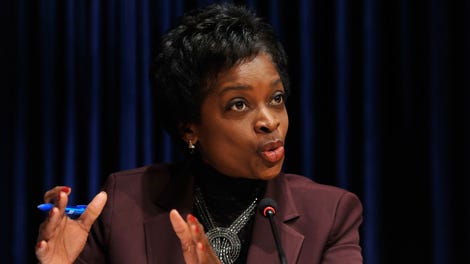
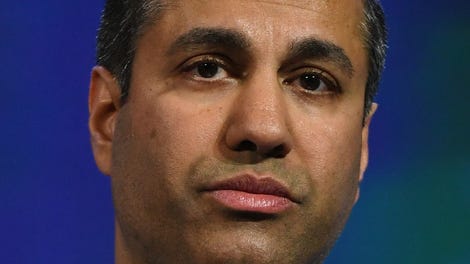
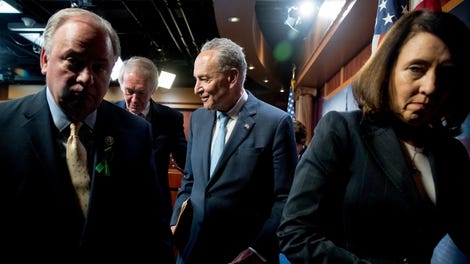
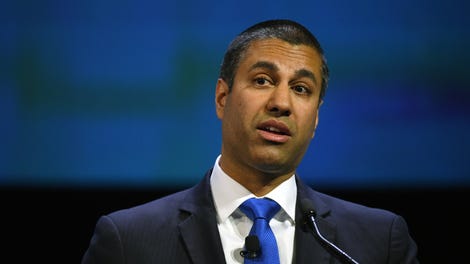
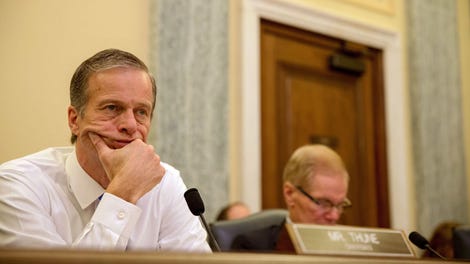
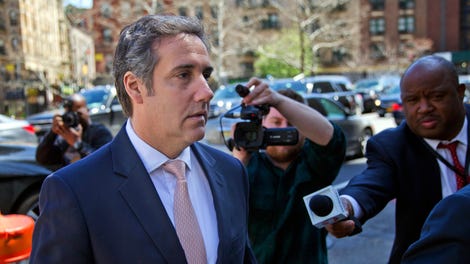

No comments:
Post a Comment